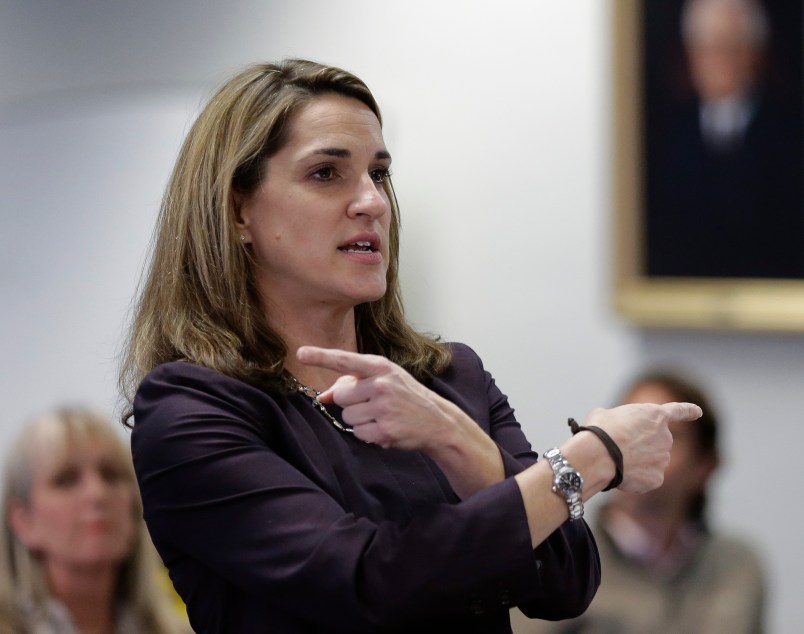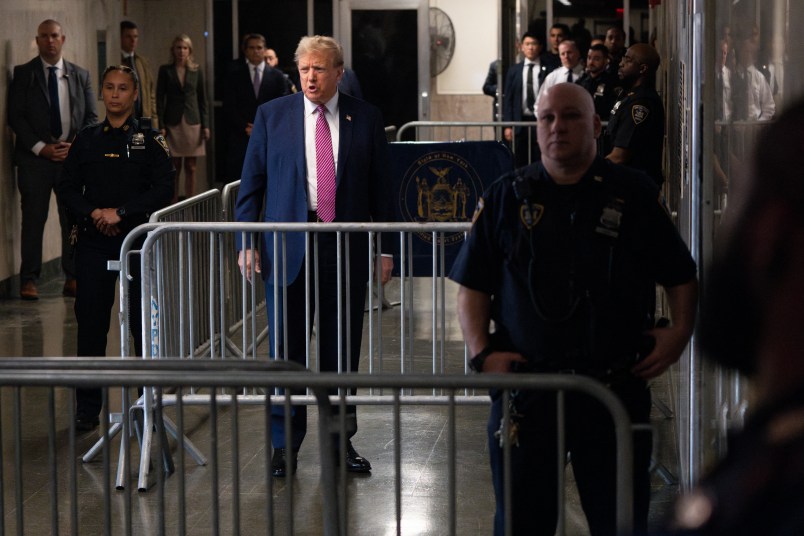AUSTIN, Texas (AP) — Pumping an extra $3.4 billion into Texas public schools didn’t convince a judge that the state is adequately funding classrooms. But how much more money it will take — and how those funds should be divvied up — isn’t likely to get sorted anytime soon.
State District Judge John Dietz ruled Thursday that Texas’ school finance system is unconstitutional, failing to provide adequate funding or to distribute it fairly between rich and poor areas.
His latest, 400-page written opinion reaffirmed his verbal decision from last year, when Dietz found that the state’s “Robin Hood” funding formula fails to meet the Texas Constitution’s requirements for an efficient system providing a “general diffusion of knowledge.”
This time, Dietz blocked Texas from using portions of its current school finance system, but also put that order on hold until next July. That gives the Legislature, which reconvenes in January, an opportunity to “cure the constitutional deficiencies,” the ruling says.
The case, though, still has a long way to go — and likely won’t be concluded until well after lawmakers have completed the 2015 session.
Texas Attorney General Greg Abbott’s office, which had argued that the system was flawed but nonetheless constitutional, says it will appeal — and that means the matter is headed to the Texas Supreme Court, a process that will likely take months.
If the high court eventually upholds the Dietz decision, it will be up to state lawmakers to design an entirely new funding method. But until then, the system will remain unchanged.
The case grew out of lawmakers cutting $5.4 billion from public education in 2011, prompting more than 600 school districts responsible for educating three-quarters of Texas’ 5 million-plus public school students to sue.
They claimed they no longer had sufficient resources to educate students. The lawsuit cited Texas’ school enrollment growth of nearly 80,000 students per year due to a booming population and the Legislature’s increased demands for standardized testing and lofty curriculum requirements to graduate high school.
The districts also said “Robin Hood” mandates that schools in wealthy areas share portions of their income tax revenue with schools in poorer areas was unfair to both.
Dietz’s verbal ruling came after months of testimony, but he held off compiling a written ruling that would start the appeals process. Then in the summer of 2013, lawmakers restored more than $3.4 billion to classrooms and slashed the number of standardized tests required for high school graduation from 15 to five.
Dietz then reopened the case in January, but new evidence on the added funding and overhauled graduation standards wasn’t enough to change his mind.
School advocates cheered, but acknowledged that little will change for now.
“Filing appeals and waiting another year or longer may be convenient for some politicians, but making students wait in a state system that provides roughly $600 less per student than it did six years ago is shameful,” said Noel Candelaria, president of the Texas State Teachers’ Association.
When they come back to Austin next year, lawmakers may again vote to increase public school funding. But that wouldn’t answer underlying questions about the way funding is distributed — and any changes to the overall formula aren’t likely until the Texas Supreme Court has had its say.
Abbott is running for governor and didn’t argue the case personally. Yet, despite his office appealing, the gubernatorial candidate struck a more conciliatory tone.
“Our obligation is to improve education for our children rather than just doubling down on an outdated education system constructed decades ago,” Abbott said. His Democratic opponent, state Sen. Wendy Davis, noted that “Abbott has been in court for years, defending overcrowded classrooms, teacher layoffs and public-school closings.”
Meanwhile, added classroom funding is no sure thing when the Legislature reconvenes.
State Sen. Dan Patrick, a Houston Republican who heads the Texas Senate Education Committee and is favored to win the lieutenant governorship in November, noted that “we have spent vast amounts of money toward education and we’re still struggling to see significant improvement.”
Bill Hammond, head of the powerful lobbying group the Texas Association of Business, said, “Simply throwing more money at our education system doesn’t make it better.”
Copyright 2014 The Associated Press. All rights reserved. This material may not be published, broadcast, rewritten or redistributed.









